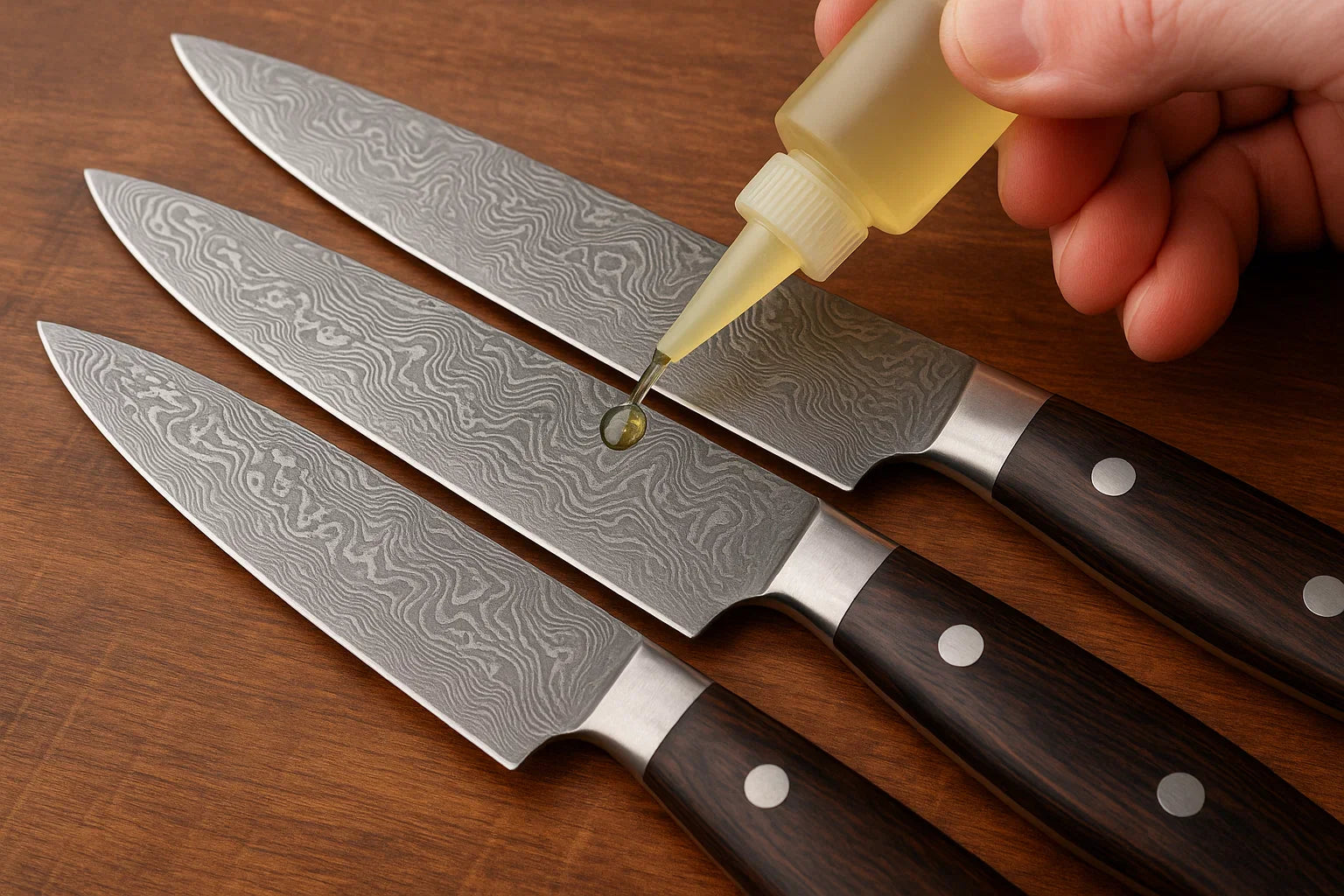Your Cart is Empty
FREE SHIPPING FOR USA

A Damascus knife is more than just a blade — it’s a masterpiece forged from layers of high-carbon and stainless steel, admired for both its razor-sharp performance and mesmerizing patterns. To keep its beauty and functionality intact for years, oiling your Damascus knife is a must. In this expert guide, we’ll walk you through why, how, and when to oil your Damascus steel knife, along with the best oils to use and key maintenance tips. Whether you're a chef, collector, or outdoorsman, this guide will help you protect your investment.
Damascus steel, especially when made with high-carbon content, is more vulnerable to moisture, humidity, and acidic residue. Without proper care, your blade can develop rust spots, discoloration, and pattern dulling.
Oiling helps to:
Prevent rust and corrosion
Maintain the layered pattern and visual appeal
Protect the steel's edge and structural integrity
Not all oils are suitable for knife maintenance. For Damascus knives, especially those used for food, choosing the right oil is crucial.
Safe for kitchen use
Odorless and tasteless
Prevents oxidation
Popular among Japanese blacksmiths
Lightweight, natural, and non-toxic
Perfect for both kitchen and collectible knives
Excellent for outdoor Damascus knives
Offers lubrication and rust protection
Not suitable for food-contact knives
Brands like Kurobara, Yoshihiro, or Smith’s make oils specifically designed for hand-forged blades
Avoid: Cooking oils like olive or vegetable oil — they become sticky or rancid over time.
Frequency depends on how you use and store your knife:
Daily use (Kitchen): Once a week or after deep cleaning
Occasional use (Collectibles): Once every 1–2 months
Outdoor knives: After every use, especially in wet/humid environments
Before long-term storage: Always oil thoroughly
Wash with warm water and mild dish soap
Use a soft sponge to remove all food or dirt
Dry thoroughly with a microfiber or lint-free cloth
Put a few drops of oil on a clean cloth or paper towel
Gently rub it onto both sides of the blade, from spine to edge
Ensure full coverage, including the tang (if exposed)
Use a dry cloth to remove excess oil
Store your knife in a dry place (wooden block, leather sheath, or magnetic strip)
Avoid storing your knife in a closed drawer without ventilation
Keep away from humid environments
Don’t store your Damascus knife while it’s still damp
For collectibles, consider wrapping the oiled blade in a soft cotton cloth before storing it.
Use a leather strop to maintain the edge along with oiling
Avoid dishwasher cleaning — hand wash only
If patterns fade over time, re-etching by a professional may help restore contrast
Regular oiling is one of the most effective ways to extend the life of your Damascus steel knife. It preserves not only the functionality but also the blade’s iconic pattern that makes each knife unique. Whether you're using your knife in the kitchen, out in the field, or displaying it in a case, consistent oiling ensures long-lasting performance and beauty.
At Jun Knives, we recommend using premium-grade oils and following this simple routine to keep your Damascus knife in pristine condition.